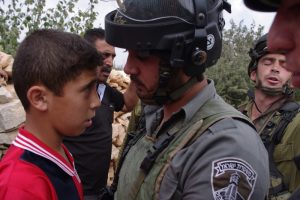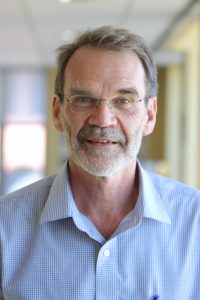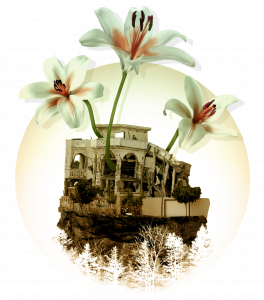
REFLECTION The Palestinian psychiatrist Samah Jabr has met many of the Palestinian children and young people who have been detained in Israeli prisons after being arrested by the Israeli military. She has found that many of them have lost faith in the parents’ ability to protect the family and safe-guard the children’s confidence in the future.
“Who protects the Arab child? The father? The poor father can’t even protect himself. So they have lost all hope in adults, in life, and in peace”. These are the words of a Palestinian father in East Jerusalem in mid-October, 2015. Frustrated and despondent, he has just resigned from his chairmanship of the local parents association. He is interviewed a few weeks into what has alternately been called the third intifada, the knife intifada, or the lone-wolf intifada.
The multitude of names signifies a lack of agreement on the causes of a new phase of the Israeli-Palestinian conflict. Since then, some 40 Israeli soldiers, police officers or civilians have been killed when attacked by individual young Palestinians, sometimes by children and most frequently in Jerusalem. During the same period around 250 Palestinians have been killed in connection with real or perceived attacks, usually perpetrated using a knife. Some were shot after killing or injuring an Israeli, but in many cases Palestinians have fallen victim to an Israeli soldier who suspected them of sinister intentions or for no apparent reason. Some have been killed under circumstances that led the UN High Commissioner of Human Rights to talk of suspected cases of extra-judicial killings, a concern repeated by the Swedish Minister for Foreign Affairs in the Swedish Parliament, where she joined the High Commissioner in calling for a review of suspected excessive violence used by Israeli authorities. During 2015 alone, 15,477 Palestinians were injured by Israeli military or police.
One such case was when a 16 year-old girl in school uniform tried to stab an elderly man (who turned out to be a Palestinian) with a pair of scissors in central Jerusalem, but was shot and then killed lying wounded on the pavement.
Why do young Palestinians commit these acts when they are likely to lead to a certain death? Why is it that a Palestinian father has no power to provide guidance and protect his own children, not even himself?
A deeper understanding requires looking both at the context of Palestinian youth living under occupation, particularly in Jerusalem, and at the psychological impact of that context on them.
The Palestinian psychiatrist, Dr Samah Jabr, has examined many young Palestinians as patients, and written extensively about what impact the Israeli occupation has on them and what motivates their seemingly desperate acts. But what she finds is neither desperation, nor suicidal tendencies. Many of them are ambitious and strive for excellence and achievement. They see themselves as “capable, altruistic and protective of the Palestinian people – and are willing to endure extreme sacrifices to realize these goals”. To them, the Israeli occupation means a situation where all the unspoken rules and norms that set the socializing framework for children growing up and keep families together are upended. They live a life where nothing is certain and anything can happen.
Part of their sense of insecurity comes from the risk of getting arrested. According to the PLO, some 800,000 Palestinian males – 40 percent of the current population – have been detained at some point in their lives since 1967, many in administrative detention without trial and including children. Seventy percent of Palestinian families are estimated to have at least one member who has been imprisoned.
In 2016, the Israeli parliament passed a law allowing a maximum 20 year sentence for stone-throwing, and a law permitting the detention of children as young as 12, for “nationalistically-motivated” offenses.
The state of mind of these children, caught up in violent acts and imprisonment, has been described by Dr Jabr. She meets adolescents, who are in an “age crisis” of impulsivity, emotional instability and a search for identity. What motivates them from excitement is stronger than the inhibitors controlling the adult. When acts perceived by them and their peers as heroic resistance against the occupier lead to detention, this will often happen when soldiers invade their homes at night, humiliating the child and the parents in front of their children.
And the conditions of detention are grim. In 2013, UNICEF concluded that “the ill-treatment” of children who come in contact with the military detention system appears to be widespread, systematic and institutionalized throughout the process, from the moment of arrest until the child’s prosecution and eventual conviction and sentencing”.
After detention, Dr Jabr observes how the children’s social and psychological growth has been interrupted, in some causing anxiety and depression, in others a manifestation of stoicism and a failure to express any emotion. Their arrest is “an attack on the body, the personality, the belief system, the hopes and the dreams of young Palestinians, rendering their families dysfunctional and breaking the bonds of their connection with their community”. Many emerge from prison unable to learn in school and pursue a profession, fearful of renewed detention.
Parents fail to protect their children; children see the failure of their parents. They are stuck in limbo, away from the innocence of childhood and deprived of their adulthood. Their identity is that of prisoner, ex-detainee.
“I don’t want a soldier to empty a magazine on a girl with scissors” said the Israeli army chief of staff in February, 2016. There could have been no more accurate statement on the grotesque asymmetry of the Palestinian-Israeli conflict. And who protects the Arab child?
Johan Schaar
Johan is former Head of development cooperation at the Consulate General of Sweden in Jerusalem”.
Do you want to comment or discuss this post? Please contact the responsible editor.
Responsible editor: Lotta Schüllerqvist, editor Middle East and Freeom of the Press and Freedom of Speech.


Lämna ett svar